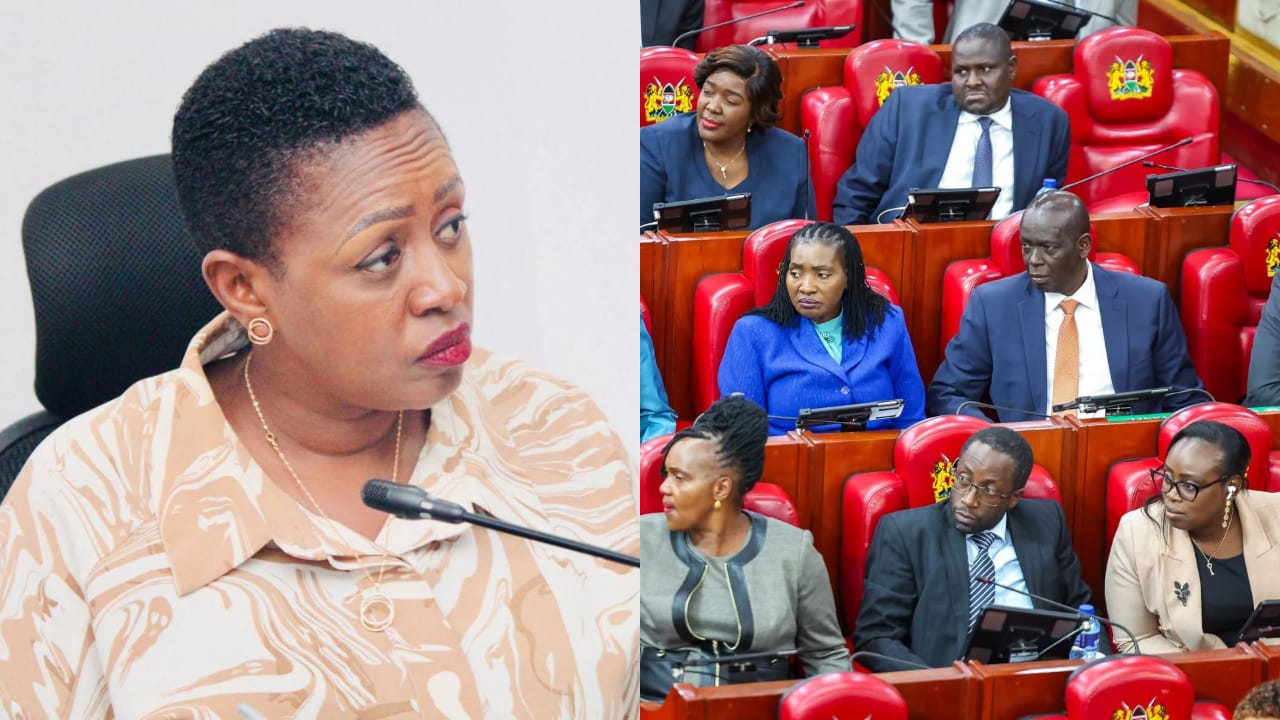 Nominated MP Hon. Sabina Wanjiru Chege (left) and on the right, members of Parliament follow keenly on the debate of Chege's motion. Photo Andrew Mbuva
Nominated MP Hon. Sabina Wanjiru Chege (left) and on the right, members of Parliament follow keenly on the debate of Chege's motion. Photo Andrew Mbuva
By Andrew Mbuva
In a decisive move aimed at bolstering confidence and funding in Kenya’s public healthcare system, Members of Parliament have overwhelmingly backed a motion that seeks to make it mandatory for all civil servants, public officers, and State officers to seek treatment in public hospitals.
The motion, tabled by nominated MP Hon. Sabina Wanjiru Chege, calls on the Government, through the Ministry of Health, to fast-track implementation of the Kenya Universal Healthcare Coverage Policy 2020–2030, and introduce a policy requiring government officers to exclusively use public health facilities.
“The Government committed to accelerating attainment of Universal Health Coverage (UHC) to ensure all Kenyans have access to essential quality health services,” Hon. Chege said, emphasizing that government-sponsored medical insurance should directly benefit the public health system. “Civil servants and State officers enjoy comprehensive medical cover from their respective agencies. Channeling these resources to public hospitals would strengthen funding, accountability, and service delivery,” she added.
The motion comes at a time when many public health facilities remain underfunded, with inadequate equipment and strained human resources, despite being the backbone of Kenya’s healthcare delivery system.
Hon. Beatrice Elachi, MP for Dagoretti North, backed the proposal, saying it is time leaders led by example and embraced public institutions. “The same doctors who serve in top private hospitals also work in public ones like Kenyatta National Hospital. The challenge is more about perception than capacity,” she said.
Elachi also called for tighter regulation of private healthcare costs, which she said continue to lock out many Kenyans from critical medical services.
Seme MP and Chairperson of the Parliamentary Committee on Health, Hon. (Dr.) James Nyikal, echoed these sentiments, urging MPs and other leaders to be the first to demonstrate trust in public healthcare. “If we truly mean to fix the system, then Parliament must lead by using public services—flawed as they may be,” he said.
MPs also used the platform to underscore the broader economic and social value of a functional public health system. Kiharu MP Hon. Ndindi Nyoro described healthcare as a cornerstone of economic development, stating: “While education adds value to the workforce, healthcare sustains it.”
Hon. Nyoro referenced the UK’s National Health Service (NHS), where even high-ranking government officials, including the Prime Minister, receive treatment in public facilities—an example he urged Kenya to emulate to restore public trust.
Elgeyo Marakwet MP Hon. Caroline Ng’elechei, while acknowledging that healthcare is a devolved function, stressed the importance of county governments in maintaining clean and well-equipped facilities to build public confidence.
Kwanza MP Hon. Ferdinand Wanyonyi emphasized the need to improve healthcare worker welfare. “Better pay and working conditions would raise morale, reduce brain drain, and enhance public service delivery,” he said.
However, Suba South MP Hon. Caroli Omondi offered a contrasting view, urging that healthcare be recentralized to ensure efficiency in implementing UHC. “For UHC to succeed, we need a unified insurance scheme, not fragmented systems. Devolution, in this case, weakens resource pooling,” he said, proposing a single national employer for health workers to standardize quality across counties.
Debate on the motion is set to continue next week, with growing consensus among lawmakers that revitalizing public healthcare must begin with government officials using the services they expect ordinary Kenyans to rely on.